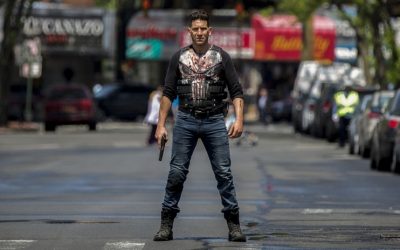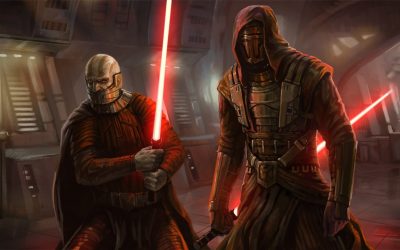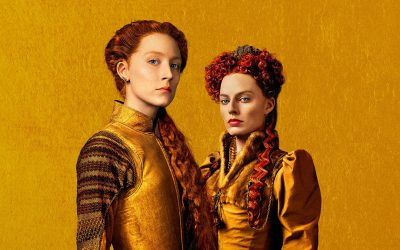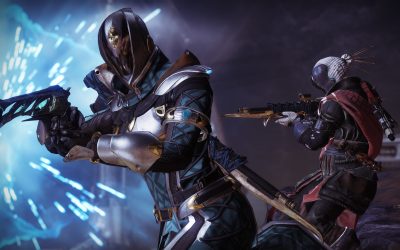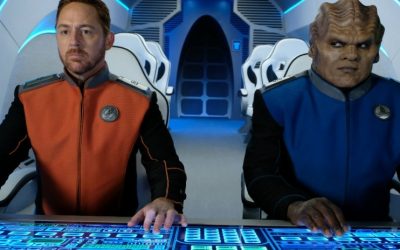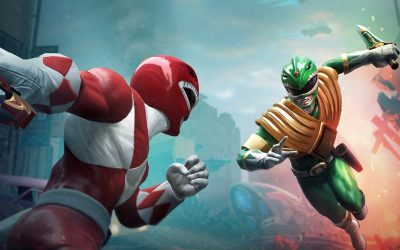
Telling Lies: voice cast revealed for Her Story’s spiritual sequel
Telling Lies will try to build upon the brilliant Her Story with help from this cast…
Writer/designer Sam Barlow and Annapurna Interactive are teaming up to bring us a spiritual successor to the revolutionary indie game, Her Story.
Called Telling Lies, this title is described as a “spiritual successor to Her Story.” That seemingly indicates that it is not directly tied to Her Story in regards to the two games’ characters, universes, and any potential shared plot points.
However, it seems that the game will utilise a set-up similar to the one featured in Her Story. That is to say that it will require players to interpret the information given to them via live-action sequences in order to reach the end of a narrative (or at least draw conclusions regarding its meaning).
Whereas Her Story forced you to make sense of various interviews with a murder suspect in order to determine what happened, though, it seems that Telling Lies will be a little grander in scope. The plot details aren’t fully known at this time, but Barlow previously mentioned that the game would draw influences from the Steve McQueen sexual thriller Shame as well as the Francis Ford Coppola film, The Conversation. He also describes it as being “in the vein of a political thriller.”
Selling the increased scope of the game is a rather impressive cast of recently revealed actors who will portray the game’s four main characters. David will be played by Logan Marshall-Green (Upgrade, The Invitation), Ava will be played by Alexandra Shipp (X-Men: Apocalypse, Straight Outta Compton), Emma will be played by Kerry Bishé (Halt And Catch Fire, Scrubs), and Angela Sarafyan (Westworld) rounds out the main cast as Max. Vivien Lyra Blair of Bird Box also has an unidentified speaking role in the game.
We’re quite excited for this title as Her Story is not only a unique narrative experience that must be experienced by anyone who wants to see what video game storytelling is capable of, but because Barlow also worked on one of the most underrated horror games of all time, Silent Hill: Shattered Memories.
There’s no word yet regarding Telling Lies‘ release date, but the principal shooting of the live-action sequences is expected to wrap soon.
As we hear more, we’ll let you know.
The Punisher season 2 ending explained
Who lives and who dies in Frank Castle’s wake at the end of The Punisher Season 2? We explain what it all means.
In case you couldn’t guess from the title, this article contains nothing but major The Punisher season 2 spoilers. We have a spoiler free review here if you would prefer.
Chances are that this season of The Punisher is going to be the penultimate Marvel Netflix show, with only Jessica Jones Season 3 left on the slate. With that in mind, you’re probably wondering: what happens at the end of The Punisher Season 2? Where does it leave everyone? Well, read on for our explanation of The Punisher season 2 ending…
Finished Jigsaw
Perhaps the most important part of the ending is that Frank Castle, aka the Punisher, kills Billy Russo, aka Jigsaw. After everything the pair have been through, this is no small deal. As we saw in the first season, Billy Russo was Frank’s friend and brother-in-arms during his military service, though it’s fair to say that the two no longer saw eye to eye by the end of season one. It did, after all, end with Frank slicing Russo’s face up on a shattered mirror before rendering him comatose.
But despite Russo’s crimes, Frank didn’t kill him when he had the chance. Frank sparing Billy at least hinted towards redemption for a man who had previously killed almost every criminal he encountered. Sadly for fans of Frank leading a normal life, season 2 saw him backslide substantially. This time he actually finishes the job, taking out Russo so that he can’t hurt anyone else ever again.
Frank Castle at large
A large part of Season 2 involves the NYPD’s Brett Mahoney (recurring from Daredevil) attempting to capture Frank Castle and bring him to justice. A couple of times he almost succeeds. But when Mahoney is called to Russo’s body, Frank’s friends, Curtis and Madani, cover up the truth.
As such, Mahoney has no leads to follow and no case to make. He’s got nothing but his own determination to recapture The Punisher. If The Punisher Season 3 were to actually happen (which, hey, it still might…) you can believe a major part of the narrative would have been Mahoney setting up some kind of Punisher task force. As it is, you’ll just have to assume that’s the direction this is going in. After all, murdering people is against the law, even if they are criminals.
Final Page
And what of Karen Page? Well, Deborah Ann Woll makes what is almost certainly her final appearance as the character a few episodes earlier, representing Nelson & Murdock, which she helped re-form in the final episode of Daredevil Season 3 (although promises that it might be Nelson, Murdock & Page seem to have not been fulfilled, unfortunately for her).
Despite some extremely close interactions, Karen and Frank never quite get the romance some had been clamoring for – but with no more screen time for these characters likely, you can at least continue to ship it.
Born
While the first season ended with the hope that Frank Castle might never have to punish people again, season two takes the opposite approach. Frank has now fully embraced his mission, severed his ties to civilian life, and entered into a full-time war against crime as The Punisher. Where he had previously been protecting Amy, he sends her away with a bundle of money to get her life straightened out, free from any involvement with him, and gets to work.
Cut to three months later, and he’s staking out a warehouse as gangs arrive. Madani calls him from a CIA field base overseas. She’s now with the agency, and they have a target they need taken out. She trusts him to do it. She’s offering him a job.
But Frank declines, telling her he already has a job. Inside the warehouse the gangs are arguing about who set up the meeting, realizing just as we do that Frank set it up as he emerges from the darkness, in full Punisher skull vest and trench coat, then unloads two automatic rifles into the crooks ahead of him. He’s no longer going to let innocent people like his family get caught in the crossfire, even if that means giving up hope of a normal life.
This time, it isn’t personal. This is just what The Punisher does. And from now on, that’s all Frank Castle is…
Star Wars: Bioware tried to start a new KotOR project
Apparently, BioWare has attempted on multiple occasions to get a new KotOR started with EA…
Over the years, we’ve heard a lot of talk about BioWare working on a new Knights Of The Old Republic game. Their first RPG in the franchise remains an absolute classic among Star Wars fans, and both Obsidian’s sequel (The Sith Lords) and BioWare’s own MMO follow-up (The Old Republic) earned legions of fans in their respective heydays.
As for a new KotOR project from Bioware, it was reported at one point that their Austin studio was secretly hard at work on a new entry in the series. However, a recent update to the EA/Star Wars fiasco seems to indicate that isn’t the case. But, reportedly, that isn’t for lack of trying on Bioware’s part.
“They’ve tried to make it happen, more than once from what I’ve heard,” says Kotaku’s Jason Schreier on Twitter in response to a question about BioWare making another KotOR game now that EA controls the Star Wars licence. “No luck”, Schreier added, bringing our hopes crashing down once again.
On its own, there’s not much information there, but there is more to this story. First off, it’s worth remembering that Schreier has been a reliable source for years when it comes to reporting on what’s happening at various video game studios.
He’s also one of the people who previously stated that those reports which suggested BioWare is actively working on a new KotOR game are mostly false. It seems that there was a point when BioWare had pitched the idea of a new KotOR to the higher-ups at EA (and possibly worked on some kind of pitch for the game that might have included tech demos), but they never actually began work on such a project in earnest.
The question now is: “Why has EA seemingly denied them the right to do so?” That remains a mystery, of course, especially since EA’s party line is that they’re “fully committed” to the Star Wars licence. We could speculate as to why they might block Bioware from making a new KotOR entry, but it really would just be our own random theories.
What’s really heartbreaking is the implications this news has regarding BioWare’s true intentions. They’ve repeatedly stated that Anthem is the kind of game they want to make, but now we hear that they have seemingly made multiple attempts to revisit one of their most beloved franchises (beyond adding new content to the Old Republic MMO).
The shame of it all is that the second KotOR game, the one from Obsidian, left us dreaming of the possibilities of that franchise. Plus, the recent history of Star Wars games has left us fondly remembering the days in which Star Wars games were in plentiful supply. At the moment, we seem to hear of more cancelled Star Wars games than we see released ones.
We’ll keep our fingers crossed for KotOR 3 to happen at some point down the line, but it might be wise to not hold our breath…
Mary Queen Of Scots director: ‘It sticks very closely to the history’
Josie Rourke on why her new drama’s historical accuracy makes it more relevant – despite a dash of necessary fiction
It’s never easy making a historical drama for the big screen – stick too close to the history and you can end up with a stodgy story that can turn audiences off; play too fast and loose with the facts and you’ll have historians lining up to point out the flaws. For Josie Rourke, director of Mary Queen Of Scots, the answer was, well, a bit of both.
An established theatre director making her first leap to the big screen, Rourke didn’t let that particular challenge put her off. “This was a kind of go big or go home first screen adventure,” she tells Den of Geek when we catch up with her in London. “I just had this instinct about Mary that her story would benefit from a retelling.”
Based on John Guy’s biography Queen of Scots: The True Life of Mary Stuart, the film picks up in 1561, when the Scottish monarch (played by Saoirse Ronan) returns to her homeland to rule after spending most of her youth in France. Spanning a 25-year period, Rourke’s drama follows the power plays of Mary’s reign and the machinations behind her ultimate exile, culminating in her execution.
“It cleaves very closely to the history,” says Rourke. “I think it’s important to say that a lot of history is the conclusions that historians draw from primary documents. What John’s book does is it goes back to the source materials and draws some different conclusions.”
“John’s a forensic historian as well as a vivid writer and he discovered that, even within her own lifetime, Mary had been fairly comprehensively maligned and ‘fake newsed’,” she continues. “What he unearthed was a lot of hiding, destroying or overwriting of the archives about Mary’s life, which either branded her as a tragic figure who was too emotional to be a competent politician, or basically ‘slut-shamed’ her.
“I just wanted to get rid of that, like John’s book did – to go back to the primary documents around Mary’s history and identity and try and tell a more truthful story.”
A meeting of minds
But what’s really interesting about the film is how it portrays Mary’s relationship with her English cousin, Queen Elizabeth I (Margot Robbie) – a fierce yet respectful, almost sisterly rivalry that played out over a series of fascinating letters. While the film largely sticks to a voiceover-led back-and-forth, it does imagine one key scene where the two queens meet.
As you might have guessed, it’s this scene that has really got staunch fact-checkers’ tails in a spin. It’s also one of the film’s standout sequences, giving Ronan and Robbie a platform to really show off their acting A-game.
“They emphatically never met,” confirms Rourke. “That meeting is based on a gigantic correspondence. Doing it all by letter would make for an incredibly dry film, so that’s an act of imagination based on that correspondence.
“But the other thing is that we are not the first people to do that, as much as I would like to claim that we are,” she says, referring to the plethora of plays, operas, movies and TV shows that have portrayed a similarly made-up meeting between Mary and Elizabeth. “It sits in a tradition of great roles for women.”
Luckily, Rourke says, her two stars were more than up for the challenge. “Saoirse and Margot really inhabit their roles and that’s exciting to me. They are incredibly intelligent woman but they’re also very physical creatures, and they complement each other’s energy. Mary and Elizabeth are two sides of the same coin. There’s a magnetic thing going on – they attract and repel. That’s always a powerful energy if you can get that right on screen – and I think they have it.”
Sign of the times
Another criticism often aimed at big-screen historical dramas is that they filter past events through a modern lens, using them as a device to channel social commentary. As Rourke says, though, that’s not always the case – in fact, there are aspects of historical society that match our own more closely than we think.
Case in point? Mary’s friend and confidant, David Rizzio (Ismael Cruz Córdova), and her second husband, Lord Darnley (Jack Lowden) – two well-known figures from Scottish history. Rizzio was accused of being Mary’s secret lover, and became a pawn in the plot to oust Mary from the throne. What hasn’t been explored before though, on the big screen at least, is a more complicated relationship between the three…
“What’s been interesting about the response to the film in some quarters is the idea that we have tacked on that Rizzio was homosexual and that Darnley was bisexual,” says Rourke. “But we know that. Darnley’s nickname in the Scottish court was the ‘great cock chick’. It was an incredibly queer period in that sense, and I feel like some people have sort of responded to that as if it’s a 21st-century imposition.
“Actually, I think we have largely forgotten how queer the 16th century was. And that’s partly because it’s not taught – we sweep it under our big educational carpet. So that actually is about really reigniting some of the things that we’ve always known to be the case.”
Likewise, while the film might be especially relevant to today’s societal climate in terms of its feminist angle, Rourke points out that the challenges faced by the two queens in their respective, male-dominated courts certainly haven’t been overly dramatised.
“They faced gigantic odds, not only in improving their legitimacy to be the ruler of their countries, but also their legitimacy to hold that place as a woman,” she says. “It’s certainly the case that this was a period of history where many people thought it was against nature for women to lead… I’m not sure that’s totally bled out of our culture just yet.”
Mary Queen Of Scots is in cinemas now
Destiny 2: the “vast majority” of Bungie is still working on the game
Bungie remains committed to Destiny moving forward, following the split from Activision
In case there was any doubt, Bungie wants you to know that developing Destiny 2 is the company’s top priority moving forward.
“Long-term, Bungie is committed to Destiny,” says Destiny director Luke Smith via a letter posted on the Bungie website. “We created the universe and we hold its future entirely in our hands. The vast majority of the team is hard at work envisioning future experiences, enemies, and ways to play the Guardian you’ve been building since 2014. We’re going to keep doing that…we’re thinking about what it means to be truly independent, what it means to self-publish, and crucially, what Destiny‘s future can now look like for our players.”
That last line might read as a shot at Activision, but that doesn’t seem to be the case. Smith takes the time to thank Activision just as others at Bungie have in the past. Granted, that’s most likely a piece of PR obligation, but it doesn’t seem that Bungie is placing all of Destiny‘s problems at the feet of Activision.
Instead, the letter reads more like an admission of sorts in which Bungie confesses that they’re not entirely sure where Destiny goes from here, but that the majority of their team is committed to answering that question. There’s a welcome bit of honesty hidden in the letter, with Bungie admitting that they have to figure out what Destiny looks like now that they are independent seemingly doubles as confirmation that they didn’t leave Activision with a firm plan in place regarding what they intend to do with the game.
That might sound like a bad thing, but it does shed a little light on the split from Activision. It really does feel like Bungie’s general feeling was that they were being constrained by Activision’s requirements and felt the need to break free in order to have the chance to discover what Destiny can be.
Certainly, those fans who still believe in Bungie and the Destiny concept may see that as the best thing to happen to the game. Whether or not that proves to be the case remains to be seen.
The Orville season 2 episode 4 review: Nothing Left On Earth Excepting Fishes
Ryan Britt
Jan 21, 2019
If there is a Star Trek: Discovery vs. The Orville feud, this episode will probably make it worse. Spoilers ahead in our review…
This review contains spoilers for the episode, and for…
Unbreakable Kimmy Schmidt season 4B spoiler-free review
Daniel Kurland
Jan 25, 2019
Out today on Netflix, the final episodes of Unbreakable Kimmy Schmidt stay true to the show’s roots and leave us wanting more…
This is a spoiler-free review. See related …
Unbreakable Kimmy Schmidt season 4B spoiler-free review
Daniel Kurland
Jan 25, 2019
Out today on Netflix, the final episodes of Unbreakable Kimmy Schmidt stay true to the show’s roots and leave us wanting more…
This is a spoiler-free review. See related …
Netflix sees Fortnite as its biggest competition
A recent letter reveals that Netflix is more worried about Fortnite than other streaming services
According to Netflix, the biggest threat to their entertainment empire isn’t HBO, Hulu, Amazon Prime, or even the upcoming Disney+. No, the company seems to think their biggest competition is Epic’s Fortnite.
“We compete with (and lose to) Fortnite more than HBO,” says Netflix in a recent letter to shareholders. “When YouTube went down globally for a few minutes in October, our viewing and signups spiked for that time…There are thousands of competitors in this highly-fragmented market vying to entertain consumers and low barriers to entry for those with great experiences.”
Netflix goes on to state that they’re not particularly concerned about any single competitor and instead choose to focus on improving the Netflix experience for their subscribers. We’re not sure how that recent price hike from US customers helps improve the Netflix experience, but we suppose they have a lot of faith in the value of their original content.
Still, it’s hard to argue with Netflix’s assessment of the situation. We hear many companies look within their own borders of the entertainment world when identifying their competition. However, Netflix has realised that what that they’re competing for is screen time. As the company points out in their report, YouTube seemingly monopolises more screen time than any of the major video streaming services.
As for Fortnite, Netflix seems less worried about Fortnite directly “stealing” customers from their service, and more worried about how the game seems to be engaging people (especially young users) and causing them to devote more of their screen time to the game rather than watching Netflix. They might retain their subscription money while they play Fortnite and watch YouTube, but they’re right to worry that people might eventually realise they don’t use Netflix as their primary source of entertainment and cancel their subscriptions.
In any case, it’s interesting to hear one of the largest entertainment providers in the world directly reference YouTube and Fortnite as serious competition in an ever-changing digital landscape.
Power Rangers fighting game revealed for consoles
Rob Leane
Jan 18, 2019
Will you be playing Power Rangers: Battle For The Grid? The cross-platform fighter comes to consoles in April
The Power Rangers franchise is heading back to games consoles with a fighting…


